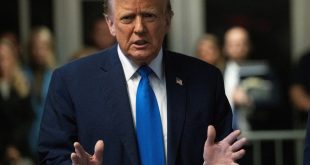A Jewish-Australian Accent
Reading your letter really resonated with me. Not because I am Asian-Australian myself, but because I undeniably have what I call a “Jewish-Australian” accent.
Like my parents, I was born and raised in Melbourne, Australia. But nine out of ten times that I speak to someone new, they inevitably ask me “So what part of America are you from?” or “Is that an American accent I detect?” Initially reluctant to announce my Jewish identity (a symptom of minority mentality, as you mentioned in your letter), I used to rely on the excuse that I was brought up on a lot of TV, usually accompanied with an awkward laugh that begged them to accept this answer.
Although this excuse has an element of truth to it (as a kid, I watched a lot of Nickelodeon and used words like “vacation” and “soda” as a result) it never seemed to satisfy people, who would question me further in disbelief. Eventually, I would also admit to the fact that I’m Jewish and that all my Jewish friends seem to have the same accent, and maybe that has something to do with it. This is usually when people’s eyes get really big and they start nodding their heads in more confusion, too awkward to question me further.
While I used to get embarrassed when asked about my accent, I’ve recently come to embrace the truth and have started to simply respond, “Oh I’m not American, I’m just Jewish.” Mostly because it ends the conversation quickly. But I also think that it’s important that people understand that different cultural and religious demographics have different Australian accents and dialects, but that doesn’t make us any less Australian. Answering honestly feels like an affirmation of my Jewish-Australian identity — something that I cannot hide even if I tried, evidently because of my Jewish-Australian accent.
— Talia Slonim
Cultural Chinese Linguistics
Having lived in Hong Kong for about a decade and a half and being a moderately proficient Cantonese speaker, I can hear the accent you describe and have a theory for it.
While the Asian-Australian accent is nothing so pronounced as the native Hong Kong-English accent, my hypothesis is that there is something in the cultural Chinese linguistics that give rise to the accent you describe. First, as you know, Chinese has very few connecting words (i.e. the verb “to go” is a single character, so there is no “to” equivalent) and Chinese is rich in single characters (or limited character phrases) that carry broad meanings. Therefore, I’m wondering if the heritage of minimal-language-for-vast-meaning is not playing out in Asian-Australians by being minimalists with word sounds? Therefore, while being fluent English speakers with Australian accents, a nod to Asian heritage comes through (perhaps subliminally) via reduced sounds per word. Just a hunch.
— Michael Corcoran
Now for our stories of the week:
 Top Naija News: Nigerian News, Breaking News Nigeria and World News Top Naija News is a daily news publication in Nigeria, delivering the latest breaking news in Nigeria and around the world.
Top Naija News: Nigerian News, Breaking News Nigeria and World News Top Naija News is a daily news publication in Nigeria, delivering the latest breaking news in Nigeria and around the world.



